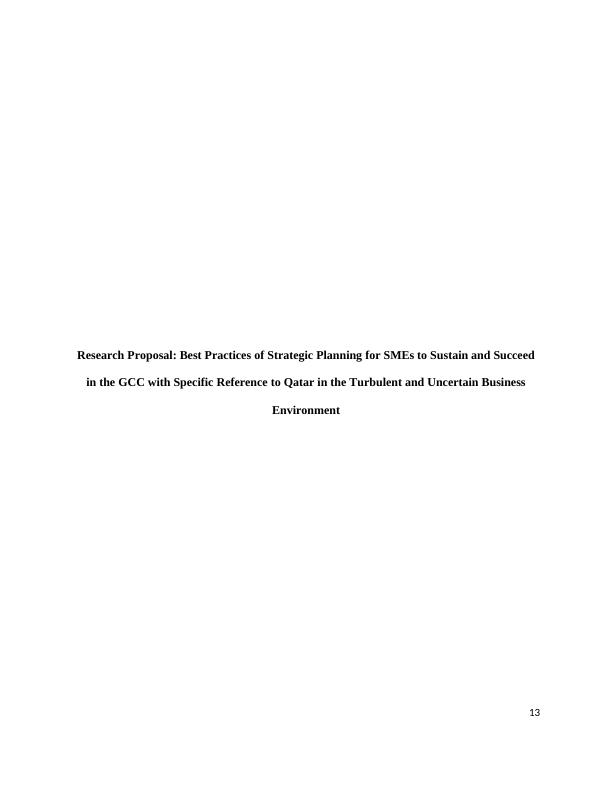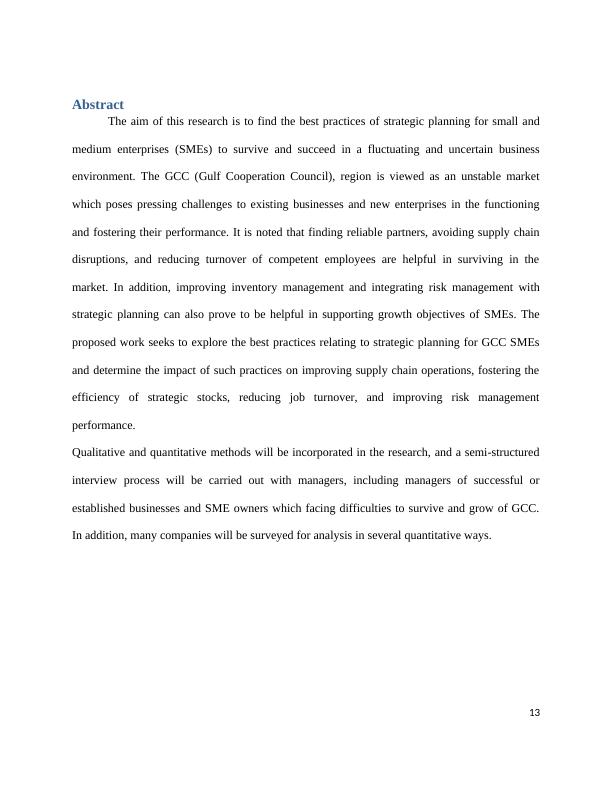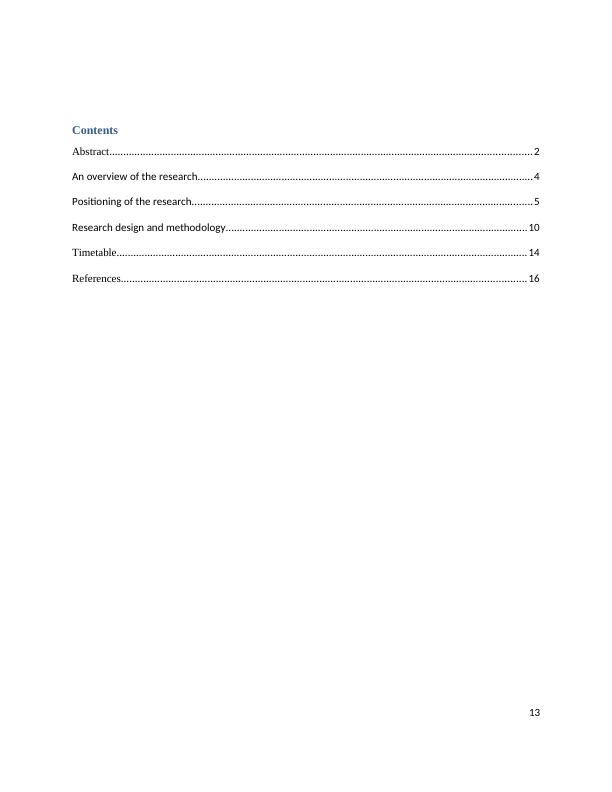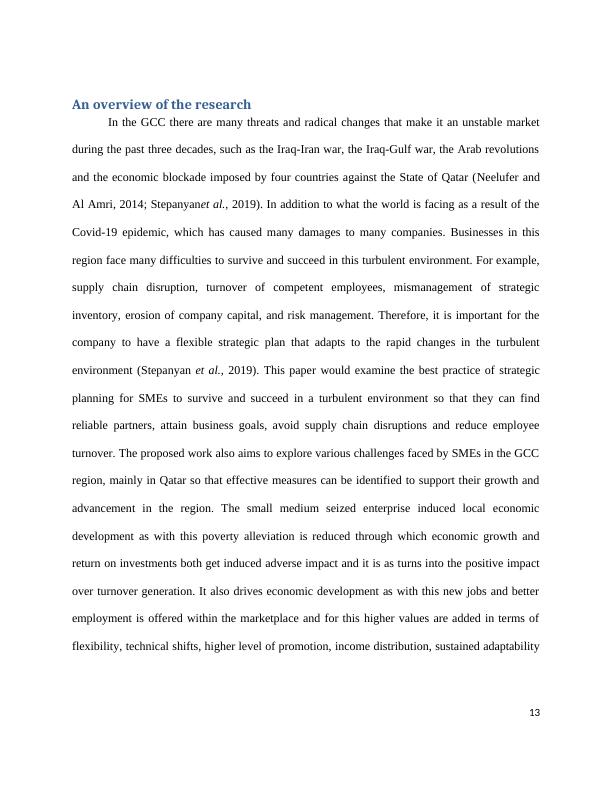Best Practices of Strategic Planning for SMEs in the GCC
The aim of this research is to find the best practices of strategic planning for small and medium enterprises (SMEs) to survive and succeed in a fluctuating and uncertain business environment.
18 Pages4189 Words1 Views
Added on 2022-12-23
About This Document
This research aims to find the best practices of strategic planning for small and medium enterprises (SMEs) to survive and succeed in a fluctuating and uncertain business environment in the GCC. It explores the impact of strategic planning on improving supply chain operations, inventory management, employee turnover, and risk management performance.
Best Practices of Strategic Planning for SMEs in the GCC
The aim of this research is to find the best practices of strategic planning for small and medium enterprises (SMEs) to survive and succeed in a fluctuating and uncertain business environment.
Added on 2022-12-23
ShareRelated Documents
End of preview
Want to access all the pages? Upload your documents or become a member.




